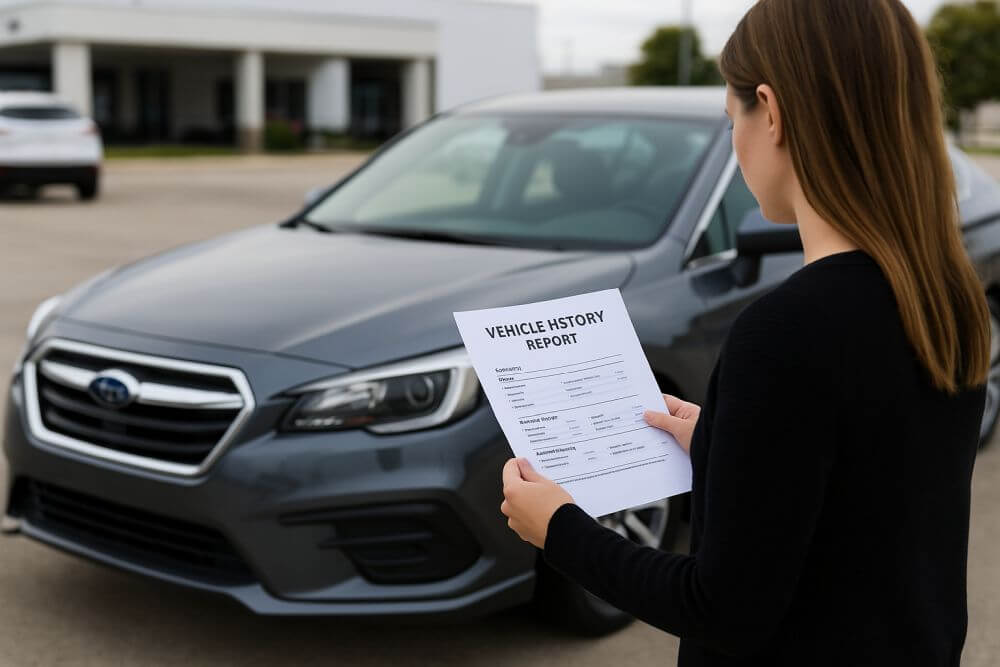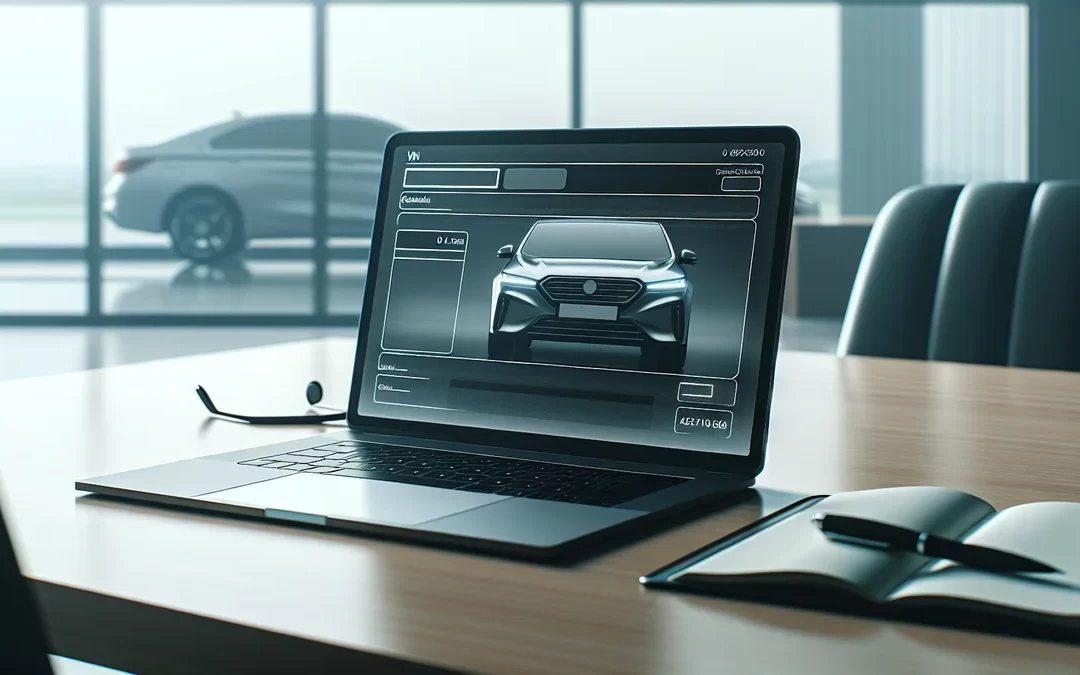If you have been shopping for a car, then chances are you have come across the acronym NMVTIS. But what does this mean? NMVTIS stands for National Motor Vehicle Title Information System. This information system uses participating state motor vehicle registries to allow public access to information reported by insurance carriers, junk yards, and similar organizations. Nearly 90% of U.S. DMV data is represented by the NMVTIS; it is one way that you can get a car history report on your own.

Why NMVTIS Was Created
With so many various fraud and criminal schemes centering on cars, the NMVTIS was created to help protect consumers. By preventing stolen vehicles from being sold and helping to identify fraud scenarios, law enforcement can reduce the number of stolen vehicles being sold to the unsuspecting public. If you are an entity that is mandated to report and does not, then you could be subject to a hefty fine per violation.
What Information Is Included In a Vehicle History Report?
NMVTIS includes information on all types of motor vehicles, including cars, buses, motorcycles, recreational vehicles, and others. Commercial vehicles may or may not be included depending on how the state handles those records. If you purchase a NVMTIS vehicle history report, it will include the following information:
- Title data for the current and previous state, including issue date
- The latest odometer data reported
- Brand assigned to the vehicle
- Theft and salvage histories
Reports are purchased through an approved service provider for costs ranging from roughly $3-13 per report. The Anti-Car Theft Act prohibits the use of federal funds to pay for NMVTIS, so all reports are paid for by user-fees.
How Information Is Reported
Each state reports data and title information to the NMVTIS. Depending on the setup, this information can be sent in real-time, or it can be sent as a batch. Batch information is uploaded on a daily basis to keep information as up-to-date as possible. Besides reporting to the state, states can also receive real-time reports from NMVTIS whenever a vehicle from their state is retitled in another state. This allows government agencies to keep a close eye on potential fraud scenarios.
How does NMVTIS Differ from Other Vehicle History Reports?
If you have been looking for a way to get a free vehicle history report, then you have likely seen that there are several options. Some advantages to the NMVTIS are that it is updated as agencies report the information. The information is also sent in a specific format, making it reliable and easy to use. On the downside, the NMVTIS does not include some information that other car history reports do, such as repair records. If you are considering buying a used car, then it is advisable to get both reports. You can also contact the current state motor vehicle titling agency to get more specific state records for the vehicle in question.
It is important to note that while the majority of states are reporting fully to NMVTIS and all states are reporting to some extent, not all offices have fully developed the capacity to provide NMVTIS with all of the information. You can check the participation map on the NMVTIS website to see if your area is participating. For those areas not yet participating, records can be accessed through private vehicle history reports or by contacting the state office directly.

Keep in mind that due to privacy laws, no personal identification is made available through NMVTIS. If you are trying to find information about previous owners of the car, then you would have to contact the state directly to see if they permit the release of such information.
How to Read an NMVTIS Report
When you receive your NMVTIS report, there are five major areas of information. These areas are considered to be key indicators of possible fraud or theft.
- The first part of information is the current state of the title. This allows tracking for theft and fraud purchases. For instance, if the car is registered in California and you live in Maine, you would not only need to update the title for the current state, but it would be worthwhile to question the cross-country move.
- The second part of the information is brand history. This is not the identifier like “Ford” or “Honda,” but rather descriptive labels used to identify the car. These labels are given by the titling agency and include special titles like junk, salvage, or flood. For people interested in purchasing a used car, these special brands can be a huge red flag that the vehicle could have major damage and will be worth way below market value for the age and mileage. Buyers should also be aware that if repairs to these vehicles were neglected or improperly done, the vehicle may not pass inspections and may not even be safe to drive.
- The third part of the information is the odometer reading. While this seems like a simple enough number, the odometer reading can impart a lot of information to buyers. For starters, odometer readings are used to help put a price tag on the car. Higher-mileage vehicles are generally worth less than lower-mileage ones. Inconsistent odometer readings can also be a red flag for odometer tampering and other types of used car fraud.
- The fourth part of the information is the total loss history. Sometimes, a car is in an accident that is severe enough that the costs of repairing the car would be more than what the car is actually worth. In these cases, the insurance company will “total” the car and send the owner a check to cover the value. In special instances, an owner may be able to buy back their previous vehicle with a salvage or junk branding on it. However, these cars are likely to pose a safety risk and may not be safe for driving.
- The last part of the information includes the salvage history. Salvage titles are given after a car is deemed to be a total loss. Depending on the state, these cars may not be street legal and are generally considered to be unsafe for driving. Consumers are strongly discouraged from purchasing a salvage titled vehicle.
NMVTIS can help law enforcement to stop theft and fraud. It can also help to protect consumers and prevent them from buying cars that would be either unsafe or overly expensive to operate in the future. If you are considering buying a used car, then you should get a NMVTIS report as part of your research on the vehicle, in addition to any free vehicle VIN check offered by the seller or dealer. That way, you will have the most information to make the informed decision as to which car is best for you.


